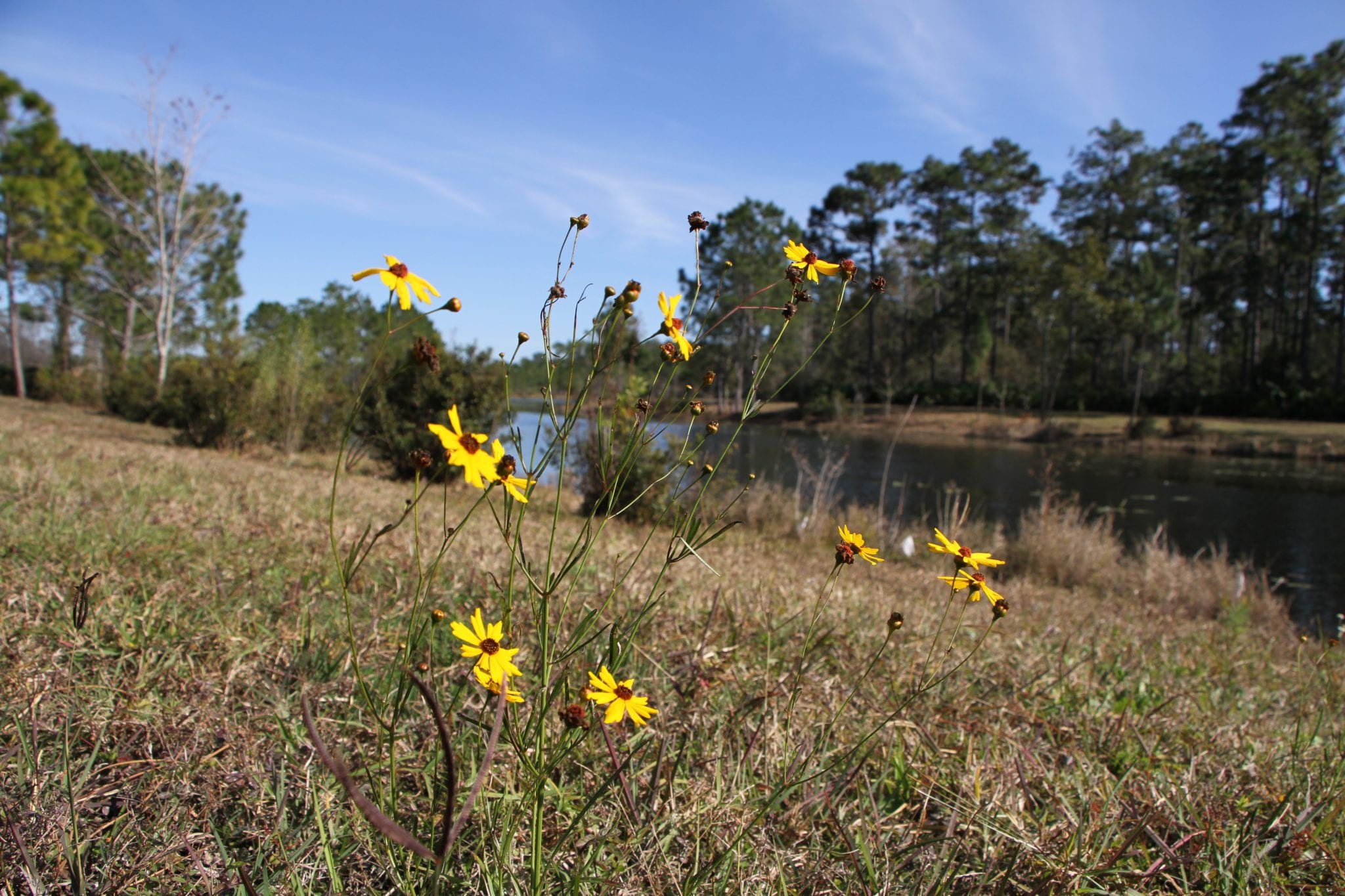The UCF Arboretum provides opportunities for student academics, such as courses and research, for hands-on learning about the environment and sustainability.
As a living lab, campus buildings and grounds become teaching tools. By blending campus infrastructure and operations with multi-disciplinary student learning projects in various Capstone and Senior Design courses, students are able to gain insight into campus sustainability challenges and even contribute to solutions.
course offerings
BSC 4861L Urban Ecological Field Studies
Urban Ecological Field Studies teaches students how to conduct research by designing experiments and providing insight into urban ecosystem questions. Additionally, students will be guided on how to effectively communicate scientific information, and the important role of science in the world. Students will design and implement a research based project, and publicly communicate the results.
Course Objectives:
- Develop an understanding of urban ecology including ecological sustainability that involves human interactions (people), economic impacts (profit), and ecological health (planet)
- Explore how urban ecosystems are connected to natural ecosystems
- Use research methods to answer real-world questions
- Communicate scientific information through poster and oral presentations
- Enhance group communication skills, and personally reflect on strengths and areas of improvement
For more information about how to register, please email Jennifer Elliott at Jennifer.Elliott@ucf.edu

ENY 3571 Honey Bee Biology and Beekeeping
The biology of honey bees and the craft of apiculture will be examined by exploring the natural history, biogeography and ecology of honeybees. Honey bee anatomy, physiology, colonial social structure, pests/diseases, pollination ecology, management and current topics in beekeeping will be discussed. The lab portion of the class will involve field exercise and hands-on experience in the UCF Apiary.
Course Objectives:
- Explain the inherent risk and safety requirements of working with live honey bee colonies
- Explain the similarities and differences between honey bees and other species, including the different types of social behavior among different species
- Identify the different types of honey bee races, where they come from, and what are their key characteristics
- Describe the basic biology, anatomy, and physiology of honey bees, including the importance of chemical communication via pheromones in contributing to social cohesion
- Give a basic overview of the history of beekeeping and development of modern beekeeping practices, including the components that makeup modern hives
- Apply knowledge of honey bee biology to managing colonies effectively, evaluating of health and strength of colonies, and management techniques to prevent swarming and increase honey production
- Understand the threats to honey bee health, methods for identifying these threats, and possible action to prevent or treat them
- Explain how apiculture can be used as a window into broader topics, such as pest transmission, invasive species, ecotoxicology, and agriculture.
For more information about how to register, please email us at Arboretum@ucf.edu or contact Dr. Bohlen directly at Patrick.Bohlen@ucf.edu.

faculty research clusters
The UCF Faculty Clusters were first introduced in 2015 as a means to combat current scientific and societal challenges present in the Central Florida community and beyond. This initiative is unique to the university, as it unifies experts in a variety of disciplines behind common goals. Environmental stability and protection represent one of the most pressing issues facing our planet today. UCF recognizes this and has exemplified its commitment to sustainability by devoting several of its faculty clusters towards advancements and developments in this area.
Renewable Energy and Chemical Transformation (REACT)
- Cluster Leads: Parag Banerjee, Ph.D. & Talat Rahman, Ph.D.
- UCF’s Renewable Energy and Chemical Transformation Cluster, or REACT, is developing new, alternative materials for catalysis to power technology and chemical processes that are safe for people and the environment. The production of electricity from renewable sources, like solar, is a cost-competitive alternative to fossil-fuel-generated electricity, and alternatively powered forms of transportation are rapidly gaining acceptance. Essential to harnessing these forms of alternative energy is research into the materials needed to produce and store them. Energy research is critical in slowing growth in carbon emissions without slowing economic growth. Within the past few years, increases in carbon emissions are now less than the rate of economic growth, due in large part to new renewable energy sources coming online.
- https://www.ucf.edu/research/energy-conversion-propulsion/
Resilient, Intelligent and Sustainable Energy Systems (RISES) Center
- Cluster Lead: Zhihua Qu, Ph.D.
- UCF’s Resilient, Intelligent and Sustainable Energy Systems Center, or RISES, works to develop sustainable and resilient energy systems and storage to make sure we have power and stay connected when disasters strike. This Center, which has grown from its original cluster designation, focuses upon holistic analysis, design, development, and deployment of distributed renewable energy resources, including advanced information, communication, control, and optimization technologies and the economic and management policies that go along with them. This research helps integrate renewable resources into the power generation mix while generating better power quality and allowing energy customers to make informed and environmentally conscientious decisions.
- https://www.ucf.edu/research/renewable-energy-systems/#cluster-content
UCF Coastal: National Center for Integrated Coastal Research
- Cluster Lead: Christopher Emrich, Ph.D.
- UCF Coastal focuses on integrating science and societal needs to address coastal issues and teach students conservation and resource management. This Center, which has grown from its original cluster designation, works to understand complex local, national, and global problems related to natural changes in coastal systems and those caused by humans. The threats and challenges Florida faces are the same that coastal communities around the world face. The solutions, methods, and technologies developed at UCF will have immediate application to other geographic locations, with the potential to be statewide and national models for how coastal states should address future environmental and economic challenges as well as growth opportunities. We invite you to further explore UCF Coastal’s offerings related to outreach and development activities. The ultimate goal is to link the ecological security of coastal ecosystems with the economic security of coastal communities, ensuring the sustainability of our coastlines and economy for generations to come. If you wish to support this vital program, please visit Give – UCF Coastal.
- https://www.ucf.edu/research/sustainable-coastal-systems/
